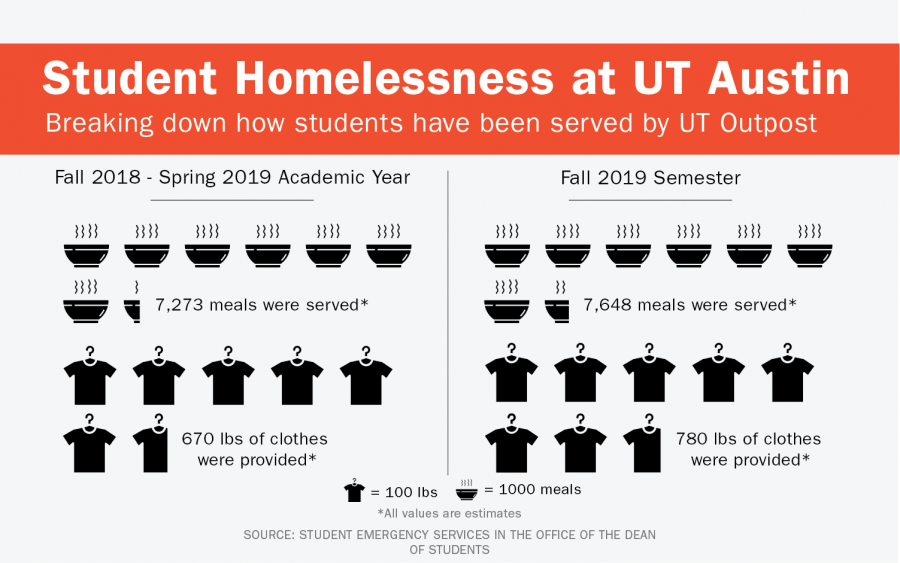Homelessness affected 17% of “surveyed” college students in the past year nationally, according to a Hope Center for College, Community and Justice report.
Petroleum engineering senior Mirka Mendez experienced homelessness when she was in high school. Mendez said she grew up in Mexico with her parents and then moved to El Paso, Texas, when she was 15.
Mendez said she didn’t know English and struggled to adapt because she did not receive support at home after she moved. She went to school and worked part time to pay rent for a bed in her relatives’ home, she said.
Mendez was never given a key and sometimes had to sleep outside when her relatives were not home, she said.
“I didn’t have Wi-Fi there, so I used to ‘live’ in the library and do my homework,” Mendez said. “My whole purpose was to do well in school.”
Mendez said she experienced housing instability and moved from her relatives home to a homeless shelter to a children’s home throughout high school. Mendez said she worked hard to graduate in three years and then decided to apply to petroleum engineering programs across the country.
“I chose my major because, number one on the list, I wanted … financial stability,” Mendez said. “I didn’t want to have to deal with all this drama anymore.”
When she first came to UT, Mendez said she didn’t feel like she fit in. But during her junior year, she said she connected with Horns Helping Horns, a student services program for financially independent students. Mendez said if she had connected with the program as a freshman, it would have positively impacted her time at UT and helped her feel equal to her classmates.
The Hope Center reported that nearly 40% of students were food insecure in the past 30 days and 46% of students were housing insecure within the past year.
Along with Horns Helping Horns, there are many on-campus resources available to students in need, including the UT Outpost, which has a food pantry and career closet that provides professional clothes to students.
UT Outpost coordinator William Ross, said students who use resources provided by the University are on a spectrum of need. Ross said some may see these services as a tool for their success whereas others are embarrassed about their stories.
Ross said the Outpost doesn’t force students to share their stories when they take advantage of these resources.
“It doesn’t matter why you’re here,” Ross said. “We’re here to serve you. You’re valued.”
Editor's Note: This story was updated to remove a source who had originally requested to be on background.





















